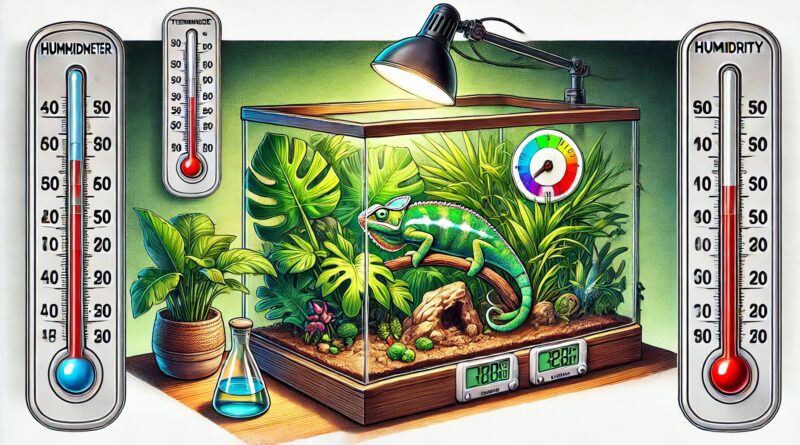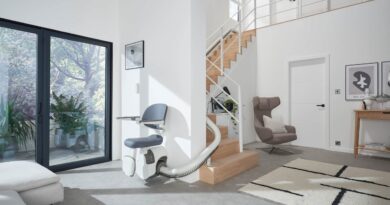Reptile Thermometer and Humidity Gauge: A Comprehensive Guide to Ensuring Your Pet’s Comfort
Keeping reptiles as pets can be a rewarding experience, but it comes with a unique set of challenges. Unlike more traditional pets, reptiles are ectothermic, meaning they rely on their environment to regulate their body temperature. Maintaining the proper temperature and humidity levels in their enclosure is critical to their health and well-being. This is where a reliable reptile thermometer and humidity gauge becomes an essential tool for any reptile enthusiast.
Why Temperature and Humidity Are Crucial for Reptiles
Reptiles come from diverse ecosystems, ranging from arid deserts to humid rainforests. Their specific temperature and humidity requirements vary depending on the species. For example:
- Bearded dragons, native to arid environments, thrive in warm, dry conditions with a basking area around 95°F and low humidity levels.
- Crested geckos, on the other hand, hail from humid tropical regions and require moderate temperatures between 72-80°F and high humidity levels between 50-70%.
Failing to provide appropriate conditions can lead to stress, improper shedding, respiratory issues, and even life-threatening illnesses. A high-quality reptile humidity gauge and thermometer can help you monitor and adjust these parameters with precision.
What to Look for in a Reptile Thermometer and Humidity Gauge
When shopping for a thermometer and humidity gauge, there are several factors to consider to ensure you’re making the best choice for your pet’s enclosure:
- Accuracy
- Accurate readings are vital to maintaining optimal conditions. Look for devices that provide precise measurements for both temperature and humidity. Many modern gauges offer digital displays for better readability and accuracy.
- Ease of Use
- A user-friendly interface makes monitoring simpler. Opt for a device that is easy to set up, read, and adjust.
- Durability
- Reptile enclosures often have high heat and moisture levels. Choose a thermometer and humidity gauge designed to withstand these conditions.
- Dual Functionality
- Some devices combine both temperature and humidity monitoring into one unit. These all-in-one tools are convenient and save space within the enclosure.
- Placement Options
- The ability to place the gauge at different levels within the enclosure is beneficial, as it allows you to monitor temperature and humidity gradients. Look for models with suction cups, adhesive backs, or probes.
Types of Reptile Thermometers and Humidity Gauges
There are several types of thermometers and humidity gauges available, each with its pros and cons:
- Digital Thermometers and Hygrometers
- Pros: High accuracy, easy-to-read displays, and often feature additional functionalities such as memory for past readings.
- Cons: More expensive than analog options and require batteries.
- Analog Gauges
- Pros: Cost-effective and straightforward.
- Cons: Less accurate and harder to read compared to digital models.
- Infrared Temperature Guns
- Pros: Instant temperature readings without needing to place a device in the enclosure. Great for spot-checking basking areas.
- Cons: Do not measure humidity and can’t provide continuous readings.
- Combination Units
- Pros: Measure both temperature and humidity in one compact device. Some models also offer Wi-Fi connectivity for remote monitoring.
- Cons: May be more costly upfront.
How to Use a Reptile Thermometer and Humidity Gauge Effectively
- Placement
- Place the thermometer and humidity gauge in different areas of the enclosure to measure gradients. For example, position one near the basking spot and another in the cooler area to ensure your reptile has access to a temperature range.
- Place the reptile humidity gauge in areas where humidity fluctuates the most, such as near water dishes or misting systems.
- Regular Monitoring
- Check the readings at least once daily. For species with more sensitive needs, more frequent checks may be necessary.
- Adjusting Conditions
- Use the data from your thermometer and humidity gauge to adjust heating elements, misting systems, or ventilation. For example, if humidity is too low, you can mist the enclosure or add a water dish near a heat source to increase humidity levels.
- Calibrate Your Devices
- Periodically calibrate your thermometer and humidity gauge to ensure they remain accurate. This is particularly important for analog models, which can drift over time.
Benefits of Using a Reptile Humidity Gauge
Proper humidity levels are just as important as temperature for reptiles. A reliable reptile humidity gauge offers several benefits:
- Prevents Dehydration: Ensures your reptile stays hydrated, especially during shedding.
- Supports Respiratory Health: Proper humidity prevents respiratory infections caused by overly dry or moist conditions.
- Mimics Natural Habitat: Accurately replicates the conditions your reptile would experience in the wild, promoting natural behaviors and overall well-being.
Top Recommendations for Reptile Thermometers and Humidity Gauges
While there are many options on the market, some highly-rated devices include:
- Zoo Med Digital Thermometer and Humidity Gauge: Combines both functions in a compact, easy-to-read digital unit.
- Exo Terra Hygrometer: Known for its accuracy and reliability, this gauge is ideal for monitoring humidity levels.
- Fluker’s Thermo-Hygrometer: A budget-friendly option that provides precise readings for both temperature and humidity.
- Etekcity Lasergrip Infrared Thermometer: Perfect for spot-checking temperatures in basking areas and hard-to-reach spots.
Final Thoughts
Ensuring the proper temperature and humidity levels in your reptile’s enclosure is not just about comfort; it’s a critical component of their health and longevity. A reliable reptile thermometer and humidity gauge makes this task manageable and precise. By investing in the right tools and maintaining consistent monitoring, you can create a thriving environment where your reptile can flourish.
Whether you’re a seasoned herpetologist or a first-time reptile owner, prioritizing the right equipment, like a dependable reptile humidity gauge, can make all the difference in your pet’s quality of life.



